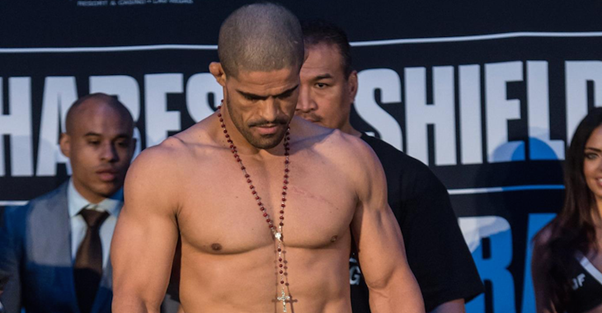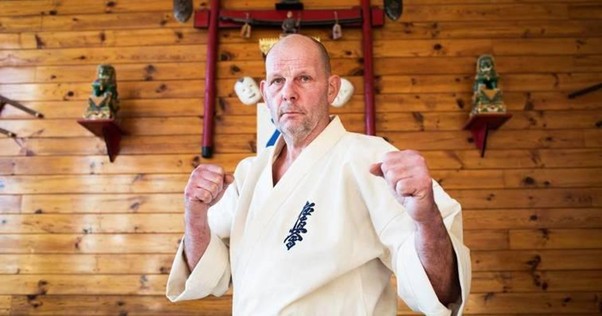Mixed martial arts is a sport built on three primary foundations: respect, discipline, and rules. These foundations are in place to ensure fair competition and the safety of fighters given the nature of physical contact. Despite these rules, the Ultimate Fighting Championship (UFC), have seen some moments where competitors broke and completely shattered those established guidelines. These fighters were willing to do whatever it took to gain an edge.
Understanding rules and abiding by them is a significant part of every industry. For context, before anyone can take part in online betting in Hungary, there’s a need to follow the rules surrounding the activities in the nation. While bettors will do well to read reviews and wagering tips on platforms such as https://mightytips.bet/, they also want to keep their eyes on what constitutes legal online betting in Hungary and which platforms offer that.
This is not just limited to online bookmakers. As Aladár Kollár, a respected tipster at MightyTips points out in his review of nvcasino, following established rules is also essential when playing casino games. But, Players in Hungary who follow the rules of betting sites will stand a better chance of winning and becoming successful.
The rest of this article will explore the careers of some of the dirtiest rule breakers in UFC history and the incidents that have earned these fighters their reputations. Let’s dive in.
Gerard Gordeau
“If Gerard Gordeau would have won the first UFC, everybody would be learning savate.” – Royce Gracie.
To find the origins of rule-breaking in the UFC, you have to go all the way back to the very first event. At UFC 1 in 1993, a Dutch kickboxer named Gerard Gordeau made it to the final against the legendary Royce Gracie. In the early days, the rules were famously loose, but one of the few explicit prohibitions was biting. However, while trapped under Gracie’s mount, Gordeau bit his opponent’s ear.
Gracie, undeterred, went on to win the fight with a rear-naked choke but Gordeau’s issues didn’t stop there. In a later fight in Japan against Yuki Nakai, he intentionally gouged his opponent’s eye multiple times.
Again, Nakai, despite the foul, fought on and won via submission, but the damage to his eye was so severe that it ultimately led to his retirement from MMA. Till date, Gordeau is regarded as the original rule breaker.
Jon Jones
Another case study we cannot discuss rule-breaking in the UFC without is Jon “Bones” Jones. Widely regarded as the one of the greatest mixed martial artists of all time, his career is as defined by his incredible talent as it is by his long list of controversies.
Inside the cage, Jones has become notorious for his use of eye pokes, a tactic that is both illegal and incredibly dangerous. His long reach and open-fingered fighting style have led to numerous instances where his opponents have been temporarily blinded. This, of course, is a foul that can completely change the course of a fight.
While many argue that these are unintentional byproducts of his style, their frequency has led to widespread criticism from fans and fellow fighters. Beyond the in-cage fouls, his career has been plagued by multiple failed drug tests for performance-enhancing substances, which have resulted in suspensions and the stripping of his titles.
Rousimar Palhares
Rousimar Palhares is a tale of a world-class talent whose dangerous skills made him one of the most feared and hated competitors in the sport. A Brazilian jiu-jitsu specialist with a particular gift for leg locks and heel hooks, Palhares’ reputation wasn’t built on his skill alone, but on his refusal to release submissions even after his opponents had tapped out.

This is one of the craziest fouls in MMA, as holding onto a joint lock for even a split second too long can cause severe, career-threatening injuries. Palhares was guilty of this on multiple occasions, leading to his eventual release from both the UFC and the World Series of Fighting.
His actions were so consistently dangerous that former WSOF Vice President Ali Abdel-Aziz claimed Palhares had “mental problems” and shouldn’t be allowed to fight again.
Gilbert Yvel
“There are no easy fights in the UFC.” – The Korean Zombie.
While some fighters bend the rules, Gilbert Yvel seemed to have a complete disregard for them. Despite being a world-class fighter from the Netherlands, his career is littered with disqualifications for a shocking array of fouls.
He has been disqualified in separate bouts for biting and for repeatedly raking his opponent’s eyes while holding onto the ropes. According to sources, his troubled past and lack of self-control made it difficult for him to get licensed to fight at various points in his career.
However, his most infamous incident occurred in a 2004 fight against Atte Backman. When the referee attempted to separate the fighters, Yvel refused to comply. After several warnings, Yvel turned and punched the referee, knocking him down, and then kicked him while he was on the floor.
It was a shameful act that went beyond all forms of rule-breaking into assault. Hence, his legacy as one of the most out-of-control fighters in the sport’s history is constantly talked about in online forums.
The Ethics of Bending the Rules
The actions of these fighters raise interesting questions about the nature of competition. While some tactics are clear violations, others exist in a grey area. However, in a sport where the margins between winning and losing are so small, it’s not surprising that some athletes will push the boundaries.
In the end, understanding the rules of every sport and how to strategically use them to one’s advantage is a key part of high-level competition.
Conclusion
The dirtiest rule breakers in UFC history have left a stain on their names and on the sport. While it is possible their actions were due to frustration and personality crisis, they have given mixed martial arts a dark side. On the flip side, their actions are a reminder that in the heat of battle, the desire to win can sometimes push fighters beyond the boundaries of fair play.
For a long time to come, their stories will serve as warning bells and a clear line between what’s right and wrong. They could be remembered as villains or apex competitors, but either way, their legacies are forever tied with the history of the UFC.



